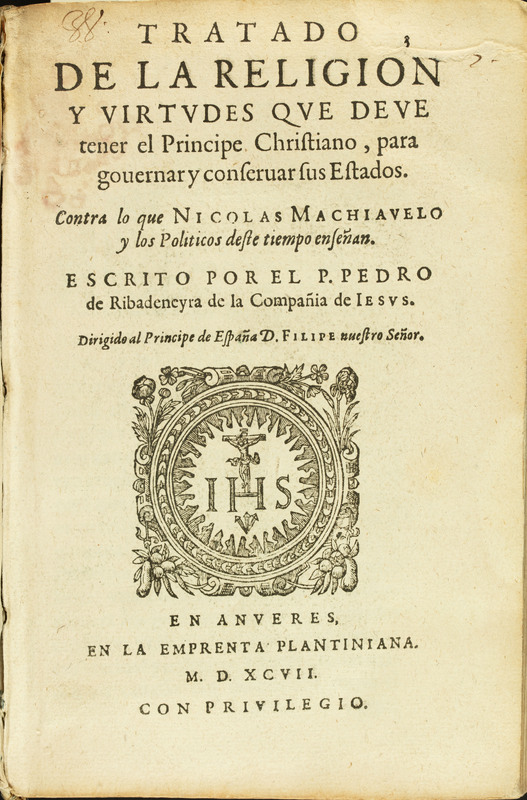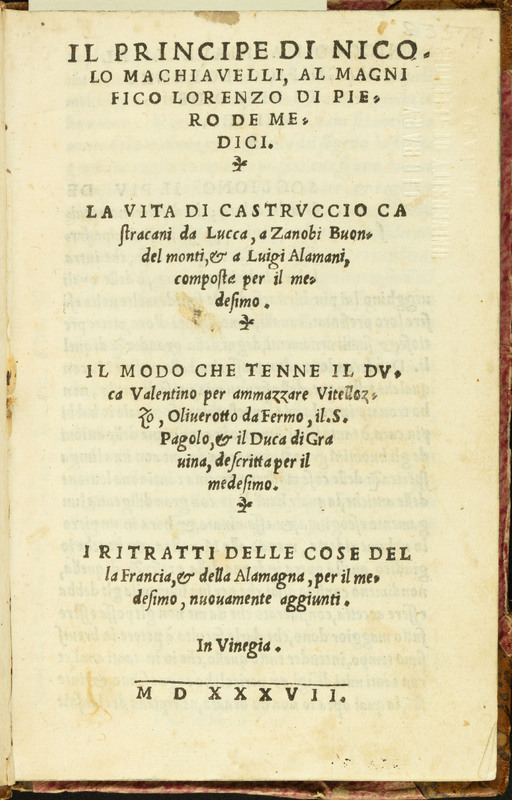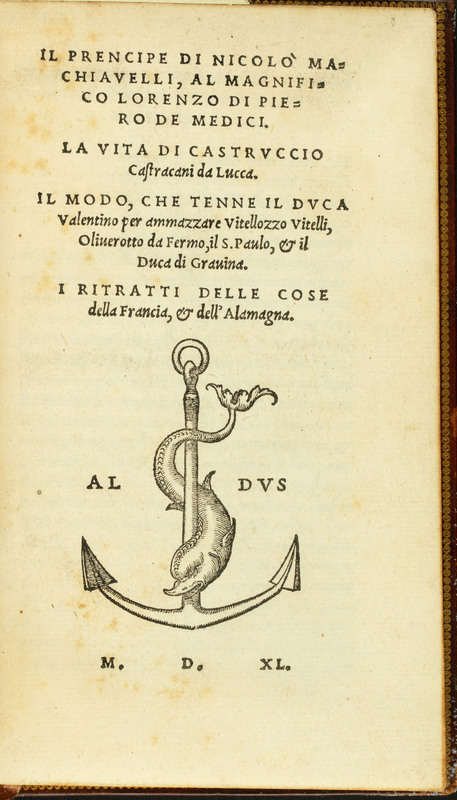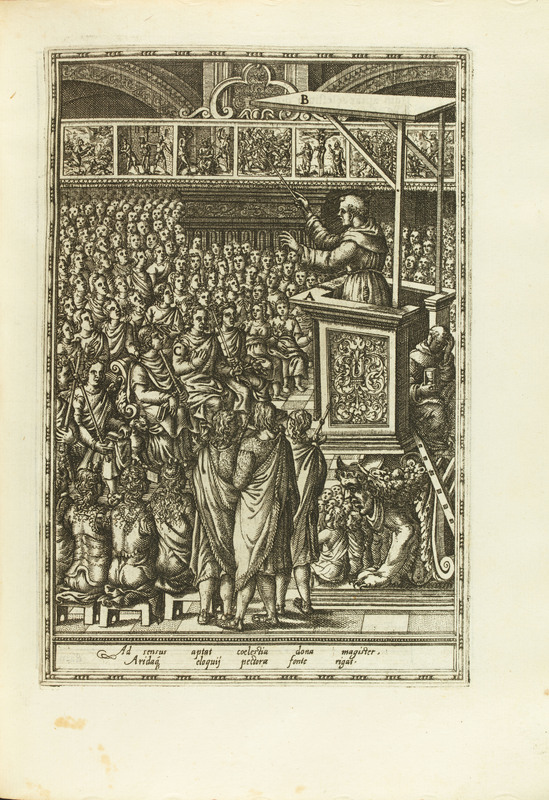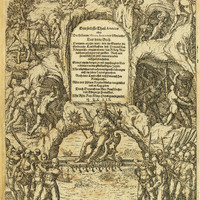Politics And Risk
How is risk to be accounted for in political discourse and practice? How does it serve to frame decision-making? Early modern political treatises abound in terms such as caution, prudence, and the assessment of risks. In their aim to achieve conciliation between reason of state and the religious and moral foundations of political legitimacy, they set the basis for the modern form of the state at the crossroads between decision-making and public perception.
Works Included
Pedro de Ribedeneyra (1526-1611) was a Jesuit thinker and writer. As the subtitle of his
work states, “Against the teachings of Nicolas Machiavelli and the politics of our own
time," Ribadeneyra aims at rebuking Machiavello's influential The Prince, outlining the
political conditions under which reason of state is compatible with Christian values.
Two early editions of Niccoló Machiavelli's II Principe, one of the foundational texts of
modern political theory. Machiavelli (1469-1527) wrote the treatise while excluded from
political life. Managing fortuna the ever changing mutation of the objective situation, is
the skill that the prince, entrepreneur of risk, must deploy. Machiavelli's famous book is
not only one of the riskiest books of all time, forever accused of corrupting morality, but
also a manual about how to control the unpredictable future through political virtú in
the spirit of the Italian Renaissance.
Diego Valadès (1533-1582) was a Franciscan missioner in New Spain. His Christian
Rhetoric, a theological treatise enriched with several engravings, addresses the need to
preach Christian doctrine to the native inhabitants of America. Through his insistence
upon combining textual and visual messages, Diego Valadès deals with the risk of
reproducing doctrine: how to convey orthodox teaching and how to help with the
memorizing of it, how to prepare the Indian body to accept Christianity, and how to
identify those elements in native societies that are willing to receive Christian doctrine.
